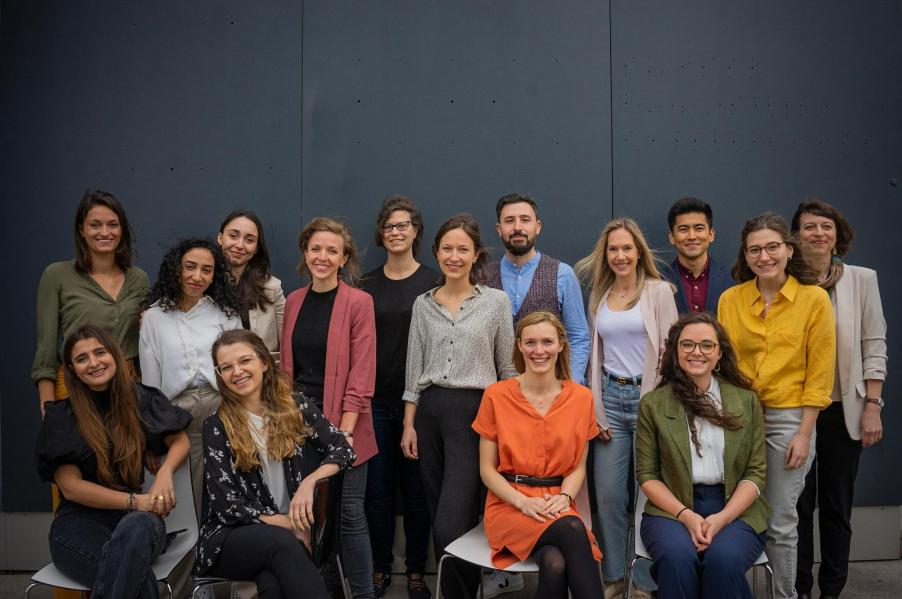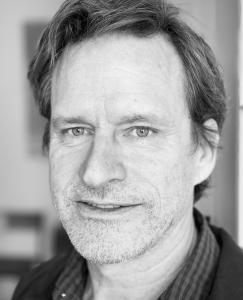Austrian social business wirkt. is a steadily growing portfolio of impact ventures offering services to address immigrant integration and other challenges, creating opportunities for positive change.
Nina Poxleitner, Julian Richter, and Lisa-Maria Sommer-Fein spent two years as teachers in inner city public schools in Vienna working with many students who were from immigrant families.
For each of them, joining Teach for Austria was a digression from more traditional career paths in the world of business. It opened their eyes to the difficulties immigrants faced in adjusting to a new home, language and culture. And it became a stepping stone toward careers that would have a positive impact on other people’s lives.
“Those two years spent teaching those kids taught me that starting off with something and just doing something about it, even as a single person, makes a difference,” says Julian.
Nina says, “Like many in my generation, I was looking for some meaning in my work. I was frustrated in what I was doing. In fact, I had never wanted to be a teacher before. It was more that I saw some impact in that work. And it was one of the best choices I made.”
The three became friends during that time and discovered they shared a desire to help other people. Six years ago, after finishing their teaching stints, they started their first social enterprise. Now they have created four of them, and they’re not done.
“We just started off with the mindset of ‘let’s start something, and maybe we can create an impulse in our society that that grows bigger than what we could do on a one-to-one basis,’” says Julian.
The three started in 2016, during that time’s refugee crisis, by creating MTOP, or More Than One Perspective, a social enterprise that helps skilled refugees enter the Austrian labour market and tries to break down negative stereotypes. MTOP acts somewhat like a labour agency, and companies pay for the service of finding the right employees.
Austrian businesses benefit from the skills and diverse backgrounds of the refugees, and the refugees benefit by getting the coaching and support that helps them find and keep jobs in a new culture.
MTOP was a finalist in the 2017 Social Innovation Tournament, sponsored by the EIB Institute to promote solutions to social and environmental problems.
Seeking a bigger impact
Nina, Julian and Lisa Maria were pleased with the success of MTOP, but they saw other issues to address.
Their experience in education and with the integration of refugees and immigrants prompted them to create three other organisations, The Culture School, The Learning Circle and Lana, which they call impact ventures. They first sprang from their experience as teachers.
“We learned a lot from our work in schools and gained insights from working with people who are new in Austria, and we combined this and asked, ‘What would school look like if we incorporated all our learning?’”
The result of that was The Culture School, a programme that accompanies students, teachers and parents or guardians for a year of workshops and support services (like translation). Co-funded by the Austrian government and the European Union, the programme promotes the idea that diversity is valuable and helps build a community across cultures.
The Learning Circle was created to meet the needs of students with special needs who were cut off from school during of the lockdown days of the COVID-19 pandemic, but the programme continues to be in demand. It matches tutors to students who need extra support for weekly 90-minute video mentoring and learning sessions.
The focus is on academic mastery and personal growth, and families pay what they can afford for the help.
Lana, or “For Us” in Arabic, is an inter-cultural support group for women, promoting dialogue and understanding between native Austrian women and recent immigrants.
A new direction
Two years ago, the three social entrepreneurs realised that the process of starting these ventures could be replicated again and again as they encountered new problems to solve, so they re-branded MTOP into an umbrella non-profit organisation called wirkt. (“have an influence” in German).

The photo shows the whole wirkt. team. Each team dedicated to one of the four projects is about three or four people.
Within wirkt., each impact venture has its own team, and each has access to the Social Innovation Studio, which, according to Nina, is like an in-house consultancy, drawing on the expertise and resources of the organisation as a whole.
“We give them different tools, mentoring, impact measurement, ad funding, marketing, and so on,” she says. “Pretty much all the support services you would get in a big corporation but that typically don’t exist for social businesses.”
And finally, the wirkt. team drew on its experience in finding solutions to societal problems to create the Ideation Lab, where through a collaborative process, new impact ventures will be created to address specific problems. The first Ideation Lab will start this autumn.
“Our first ideation process will be on education,” Julian says. “We’re going to focus on one problem that needs solving right now, and from there we’ll incorporate everyone who has something to say on that topic — that could be teachers, that could be pupils, parents — it’s a contest of solutions that we create, and not ideas that already exist as ventures.”
The founders of wirkt. would like to see its process become a model that would help other people interested in making a social impact to start a business.
“I would like to see students in universities see working in a social business as one of their choices,” says Nina. “I would like it to be a relevant, professional choice to work for a social business, and not just be a niche anymore.”
